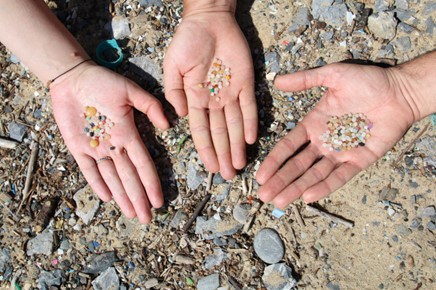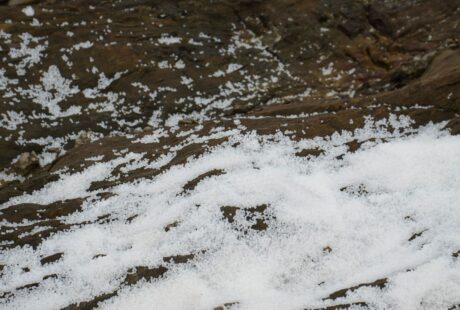News article by Surfrider, a Seas At Risk member
With 160,000 tons of pre-production plastic pellets lost by the industry each year in the EU, plastic pellet pollution is a chronic problem to be fixed.
The issue is widespread across Europe – and globally – with no signs of improvement. Pellet pollution is as old as plastic production itself, so the industries that produce and transport plastic pellets should be responsible for preventing pellets from ever entering the environment. Yet decades later, they have only proposed a superficial solution based on a voluntary initiative: Operation Clean Sweep.
Plastic pellets, or nurdles, are the raw materials used in the production of plastic items. Their light weight, small size (typically smaller than 5 mm), and spherical shape make them easy to transport and mould into plastic products.
Poor handling and management mean that pellets are spilled in enormous quantities at each stage of the plastic supply chain: including production, transportation, storage and recycling.
The riverine and marine environments then suffer from this persistent and irreversible problem. Pellets carry toxic chemicals and additives which, when eaten by animals, ultimately contaminate the human food chain.
Appropriate regulatory measures and control are the solution to prevent plastic pellet pollution, not insincere and ineffective “solutions” like Operation Clean Sweep.
Why is Operation Clean Sweep a superficial solution to plastic pellet pollution?
Surfrider’s recent infographic demonstrates the gaps and failures of this industry-led initiative. Among other issues, it is voluntary, meaning there is no obligation to participate in the initiative nor to implement the measures it promotes. Operation Clean Sweep was only created to delay (and avoid) regulatory binding measures that decision–makers would have adopted to address the problem.
Today, as the European Commission foresees the possibility of harmonised and binding measures at the EU level, the plastic industry is using the same delaying tactic that’s been successful since the 1970s, preparing the Operation Clean Sweep certification scheme under the guise of genuine producer responsibility. Surfrider sees through the proposed scheme, and knows industry is using it to cover their lack of ambition to implement legitimate, efficient changes in their manufacturing and transportation process, and disinterest in preventing pellet pollution.
Surfrider has been working on pellet pollution for years, ranging from collecting data through citizen science projects, to fighting on the ground – such as in Tarragona, Spain and Ecaussinnes, Belgium – all to place this issue on decision–makers’ agendas.
Today, Surfrider demonstrates that the best strategy to prevent pellet pollution is to adopt binding measures at both national and EU levels, that ensure regular, independent and external monitoring and strict control of their implementation.
See Surfrider’s infographic to learn more.
Posted on: 8 November 2022



